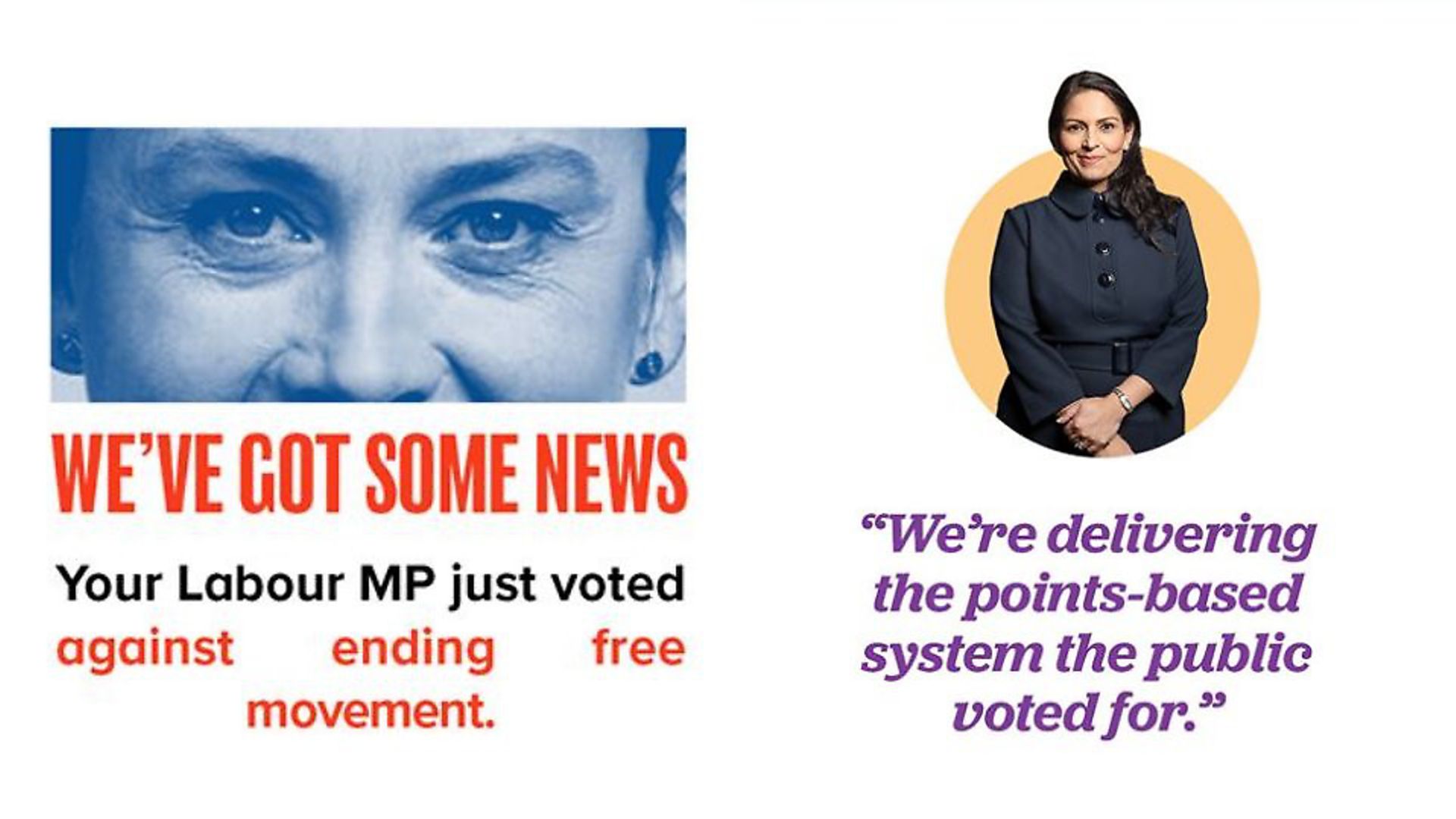
The Tories are seeking revenge on Labour MPs which voted against ending freedom of movement by stoking up fears over immigration on Facebook in their marginal seats.
Have your say
Send your letters for publication to The New European by emailing letters@theneweuropean.co.uk and pick up an edition each Thursday for more comment and analysis. Find your nearest stockist here or subscribe to a print or digital edition for just £13. You can also join our readers' Facebook group to keep the discussion and debate going with thousands of fellow pro-Europeans.
The Independent discovered that 19 marginal constituencies have been singled out – including Bedford, Coventry North West, Wansbeck, Leamington and Warwick – to run adverts promoting that their local MP voted against the government’s immigration bill.
Labour opposed the bill over visa restrictions on care workers coming into the country in the middle of a pandemic.
But the Tories instead are promoting the fact that their local politician has ‘voted against ending free movement’.
One advert, targeting Yvette Cooper’s seat, says: ‘Yvette Cooper, your MP for Normanton Pontefract & Castleford, has JUST VOTED AGAINST a stronger points-based immigration system – one that takes back control of our borders.
‘Do you back our Immigration Bill? Tell us on our survey below’.
They have also selected the marginal seat of former Lib Dem leader Tim Farron in Cumbria.
The adverts ask voters to click through to fill in a ‘survey’ where respondents are asked to give views about immigration, before being asked to supply an email address and to opt-in to messages from the party’s campaigns team.
According to Facebook the Tories are spending between £2,000 and £4,000 to reach approximately one to two million people in these areas.
Separate advertising from Priti Patel also encourages people to fill in the survey, claiming it is the ‘points-based system the public voted for’.
Sir Keir Starmer has reportedly ruled out spending money on Facebook adverts in solidarity with the Black Lives Matter movement, who felt that the platform does not do enough to remove hate speech and fake news.
Last year an organisation found that nearly 90% of Tory adverts during the general election campaign were deemed misleading, whereas none were found to be misleading from Labour.









